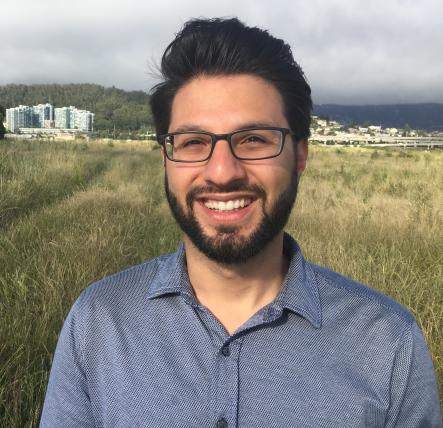NELC welcomes Aria Fani as Assistant Professor of Persian and Iranian Studies to its faculty. Aria received his BA in Comparative Literature from the San Diego State University and a PhD in Near Eastern Studies from the University of California, Berkeley. He submitted his dissertation titled "Becoming Literature: The Formation of Adabiyat as a Discipline in Iran and Afghanistan (1895-1945)" in August 2019.
Aria's research focuses on the development of literature as an institution as it developed in Iran and Afghanistan in the late nineteenth and twentieth centuries. He especially examines the engagement of two generations of literary educators and university professors with the discursive demands of modular nationalism on the one hand and the historiographical and hermeneutical heritage of classical Persian literature on the other hand. He has published a textbook for the teaching of Persian as a heritage language and scholarly articles on the aesthetic features of Persian literary texts. He also translates Persian poetry into English and currently works on a poetry collection by Bizhan Jalali titled Shades of Silence. In another article, Aria focused on the transnational aesthetics of a poetic movement in Soviet-occupied Afghanistan that has often been portrayed as strictly political. As such, Aria's research combines aesthetics and politics of literature in larger methodological and theoretical approaches with a focus on wider Near Eastern contexts.
In his own words, this is what becoming a UW faculty means to Aria: "Joining a great public school like the University of Washington excites me to no end! I look forward to working with UW's diverse student body, championing working class students who've historically been excluded from academia and academic conversations, and making a compelling case for why the humanities is more relevant than ever. Being a part of NELC means I will be in dialogue with such intensely interconnected fields as Hebrew, Turkish and Arabic Studies and have a major seat at the global table of Iranian Studies scholars who are actively shaping a relatively young but growing field of study. For me, there is no humanities without the human at its center. In my time at UW, I aim to empower my students not only to cultivate intellectual rigor but also moral imagination and empathy. I will continue my advocacy work with Latin American asylum seekers to lead by example. Social advocacy has been in perfect harmony with my scholarship and teaching and I cannot imagine a world in which these activities would be sealed off from one another. I can tell that UW and NELC are a place where my divided investments can form a whole."
